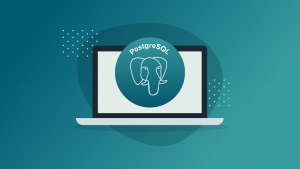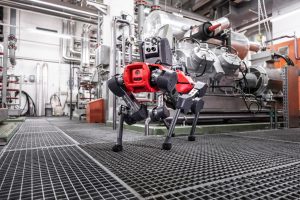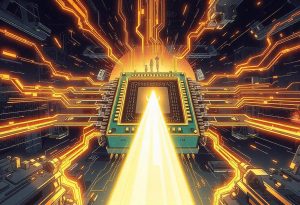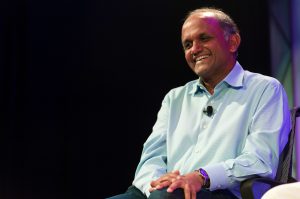VMware Cloud Revolution – The Role of the Traditional Operating System
![]() A central theme that has appeared in VWware’s strategy presentations over the years is the role that the traditional OS will play.
A central theme that has appeared in VWware’s strategy presentations over the years is the role that the traditional OS will play.
At their recent VMworld 2010 conference, Paul Maritz gave a compelling keynote that made the case that the traditional operating system is losing its central position. Specifically the OS being squeezed from above and below:
From below: the OS’s role in mediating resource requests is being taken over by the hypervisor infrastructure
From above: the application frameworks are providing environments where developers can just push code and be somewhat divorced from aspects below the coding/application level
In VMware presentations in years past, the role of the OS was presented in different words.
The advantage of virtualization was described as having the ability to decouple the application from the underlying hardware. They showed the old, pre-virtualization stack with hardware/OS/application, with a strong binding between hardware and OS. In contrast, the stack after virtualization showed a strong binding between OS and application, which serves to free the application from being stuck on a piece of hardware. This clearly is the accepted view now, with virtual machines being fundamental components that can be moved from hardware to hardware and cloned to make many copies.
However, taking a virtual machine as a basic IT unit does not necessarily diminish the role of the OS. In fact, one can distinguish between two different views of the virtual machine: the virtual machine as black box, i.e., the virtual appliance view, and a white box view of the virtual machine.
In the past, the virtual appliance (the blackbox view) has meet with resistance from IT shops, which typically standardize on particular operating systems and patch management solutions; that is, they view a virtual machine as a white box, the exact details of the OS being key. Their hiring for system admins are not in terms of generic system admin, but looking for experience in either Windows, Linux, Mac, etc.
The challenge with the appliance model has been particularly true on the server side, while in comparison, this model has had most its traction on the networking and storage device side. We believe that a key difference that accounts for the acceptance of an appliance on the networking side versus the server side is that most networking gear typically has rich unified configuration languages (IOS, Junos, etc). In contrast, on the server side there is no uniform configuration language and instead separation between OS configuration and application configuration. Moreover each application has its own configuration language and paradigm.
The Incredible Diminishing Operating System
![]() The trade-off that results is that in the networking world it is relatively harder to add new applications/services, this being typically the role of the network vendor, while on the server side, the emphasis is enabling third party applications; moreover, the OS vendors are not responsible for all the applications. Instead one key role of the OS is to provide this application flexibility (e.g., package management, installation) to allow a large number of applications from many different vendors to be installed and coexist and share when needed common libraries or services.
The trade-off that results is that in the networking world it is relatively harder to add new applications/services, this being typically the role of the network vendor, while on the server side, the emphasis is enabling third party applications; moreover, the OS vendors are not responsible for all the applications. Instead one key role of the OS is to provide this application flexibility (e.g., package management, installation) to allow a large number of applications from many different vendors to be installed and coexist and share when needed common libraries or services.
One challenge to VMware’s view of the diminishing operating system is what will play this critical package-management/installation role of the OS.
A message from John Furrier, co-founder of SiliconANGLE:
Your vote of support is important to us and it helps us keep the content FREE.
One click below supports our mission to provide free, deep, and relevant content.
Join our community on YouTube
Join the community that includes more than 15,000 #CubeAlumni experts, including Amazon.com CEO Andy Jassy, Dell Technologies founder and CEO Michael Dell, Intel CEO Pat Gelsinger, and many more luminaries and experts.
THANK YOU









